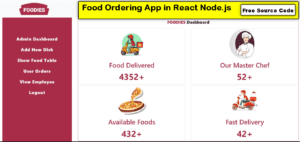Looking to dive into the world of web development? This article provides a step-by-step guide on how to start learning web development in just 30 days. Follow the daily tasks and tips to kickstart your journey towards becoming a proficient web developer.
Introduction:
Web development has become an increasingly sought-after skill in today’s digital age. Whether you aspire to build your own website, explore a new career path, or enhance your existing skills, learning web development can open up a world of opportunities. In this article, we will walk you through a 30-day journey, outlining each day’s tasks and tips to help you start your web development journey successfully.
How to Start Learning Web Development in 30 Days
Table of Contents
Day 1: Understanding the Basics
To begin your web development journey, it is important to understand the basics. Familiarize yourself with HTML, CSS, and JavaScript, which are the building blocks of web development. Get to know their roles, syntax, and how they work together to create web pages.
Day 2: Design Fundamentals
Aesthetics play a crucial role in web development. Take some time to learn about design fundamentals such as color theory, typography, and layout principles. Understanding these concepts will enable you to create visually appealing and user-friendly websites.
Day 3: Setting Up Your Development Environment
Choose a text editor or an integrated development environment (IDE) that suits your preferences. Popular options include Visual Studio Code, Sublime Text, and Atom. Install the necessary software and plugins required for web development.
Day 4: Introduction to HTML
Start diving into HTML, the backbone of web development. Learn about the structure and syntax of HTML tags, elements, and attributes. Practice creating simple web pages using HTML.
Check 100+ PHP Projects with Source Code
Day 5: Styling with CSS
Next, delve into CSS to bring life to your web pages. Explore selectors, properties, and values to customize the appearance of your HTML elements. Experiment with different CSS techniques and create captivating designs.
Day 6: Responsive Web Design
In today’s mobile-first era, it is essential to create websites that adapt to different screen sizes. Learn about responsive web design techniques using CSS media queries. Develop websites that provide a seamless user experience across devices.
Day 7: Introduction to JavaScript
Begin your journey into the world of dynamic web development by learning JavaScript. Understand the basics of variables, data types, functions, and DOM manipulation. Practice small coding exercises to solidify your understanding.
Day 8: JavaScript Fundamentals
Expand your JavaScript knowledge by exploring concepts such as conditionals, loops, arrays, and objects. These fundamental concepts will empower you to build interactive and dynamic websites.
Day 9: Web Development Frameworks
Familiarize yourself with popular web development frameworks such as React, Angular, or Vue.js. These frameworks provide structure and efficiency to your web development projects. Choose one that aligns with your goals and interests.

Day 10: Version Control with Git
Git is a powerful tool for version control and collaboration in web development. Learn the basics of Git, including creating repositories, branching, committing, and pushing changes. This skill will immensely benefit your workflow and collaboration with other developers.
Day 11: Introduction to Backend Development
Discover the server-side of web development by gaining an understanding of backend technologies such as Node.js, Python, or Ruby on Rails. Learn about server architecture, databases, and server-side scripting languages.
Day 12: Building Your First Backend Application
Put your newly acquired backend development knowledge into practice by building a basic backend application. Learn how to handle incoming HTTP requests and send appropriate responses using frameworks like Express.js or Django.

Day 13: Exploring Databases
Databases are essential for storing and managing data in web applications. Explore popular databases like MySQL, MongoDB, or PostgreSQL. Learn the fundamentals of database design, querying, and integration with web applications.
Day 14: Introduction to APIs
Application Programming Interfaces (APIs) enable communication between different software systems. Understand the concepts of RESTful APIs and how to consume them in your web applications. Explore popular API services like Twitter, Google Maps, or OpenWeatherMap.
Day 15: Project Planning and Wireframing
Effective project planning is crucial for successful web development. Learn how to create wireframes, define project scope, set milestones, and create a roadmap for your web development projects. Utilize tools like Figma or Adobe XD for wireframing.
Day 16: HTML Templates and Templating Engines
Simplify your front-end development workflow by using HTML templates and templating engines. Explore popular templating engines like Handlebars, EJS, or Jinja. Master the art of creating reusable templates for your web applications.
Day 17: Test-Driven Development (TDD)
Ensure the reliability and accuracy of your codebase by adopting Test-Driven Development. learn about writing test cases using frameworks like Jest, Jasmine, or PyTest. Embrace the TDD philosophy to write secure and error-free code.

Day 18: Browser DevTools and Debugging
Proficient web developers make use of browser developer tools to inspect, debug, and optimize their code. Learn about the different features offered by Chrome DevTools or Firefox Developer Tools. Practice identifying and fixing bugs in your web applications.
Day 19: Performance Optimization
Optimizing website performance is crucial for providing an exceptional user experience. Explore techniques such as minification, caching, lazy loading, and image optimization. Apply these optimizations to your web projects to ensure speedy and efficient websites.
Day 20: Security Best Practices
Web security is of utmost importance to protect your web applications and user data. Learn about common security vulnerabilities like Cross-Site Scripting (XSS), Cross-Site Request Forgery (CSRF), and SQL Injection. Implement security best practices to secure your web applications.

Day 21: Deploying Your Web Applications
Learn how to deploy your web applications to a web server or cloud platform. Familiarize yourself with deployment tools like Heroku, Netlify, or AWS. Understand the deployment process and configure your applications for a live environment.
Day 22: Continuous Integration and Deployment (CI/CD)
Streamline your development workflow by implementing Continuous Integration and Deployment. Learn about CI/CD tools like Jenkins, Travis CI, or GitHub Actions. Automate the testing and deployment process to ensure smooth and efficient development.
Day 23: Accessibility in Web Design
Create inclusive web experiences by understanding and implementing accessibility standards. Learn about the Web Content Accessibility Guidelines (WCAG) and how to make your websites accessible to users with disabilities.
Day 24: Performance Monitoring and Analytics
Monitor your web application’s performance using tools like Google Analytics, New Relic, or Pingdom. Understand user behavior, track website performance, and make data-driven decisions to optimize your web applications.
Day 25: Contribute to Open Source Projects
Contribute to open-source web development projects to enhance your skills and collaborate with the developer community. Explore platforms like GitHub, find projects aligned with your interests, and submit pull requests to make valuable contributions.
Day 26: Continuous Learning and Stay Up-to-Date
Web development is a rapidly evolving field. Stay up-to-date with the latest trends, frameworks, and technologies. Engage in online communities, read blogs, and follow influential web developers to foster continuous learning.
Day 27: Portfolio Creation
Assemble a portfolio of your web development projects to showcase your skills and expertise. Select your best projects and create an attractive online portfolio using platforms like GitHub Pages or Behance. Demonstrate your proficiency to potential clients or employers.
Day 28: Building a Personal Brand
Establishing a personal brand is essential in the competitive web development industry. Create a website or personal blog to share your knowledge, insights, and experiences. Engage with the community through social media, guest blogging, and attending web development conferences.
Day 29: Networking and Collaboration
Forge connections with fellow developers, industry professionals, and potential clients. Network through online communities, attend web development meetups, and participate in hackathons. Collaborate on projects to expand your knowledge and create meaningful relationships.
Day 30: Reflect, Revise, and Next Steps
After completing your 30-day web development journey, take a moment to reflect on your accomplishments and areas for improvement. Revise and refine your existing projects, identify new areas of interest, and set goals for your future web development endeavors.
Conclusion:
Embarking on a journey to learn web development can be both exciting and challenging. By following this How to Start Learning Web Development, you will acquire the necessary skills and knowledge to kickstart your career in web development or create stunning websites for personal projects. Remember, learning web development is an ongoing process, so continue to explore new technologies and strive for excellence. Happy coding!
Latest Post :-
| Keyword |
|---|
| how to start learning web development |
| how to start learning web development reddit |
| how to start learning web development from scratch |
| how to start learning web development from scratch |





